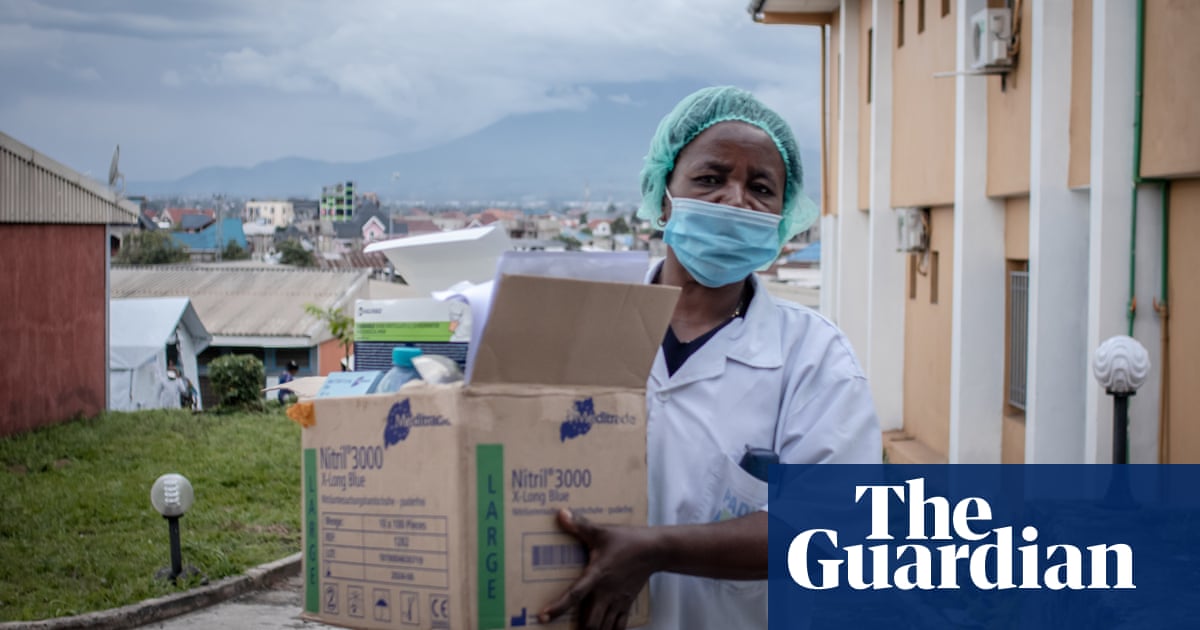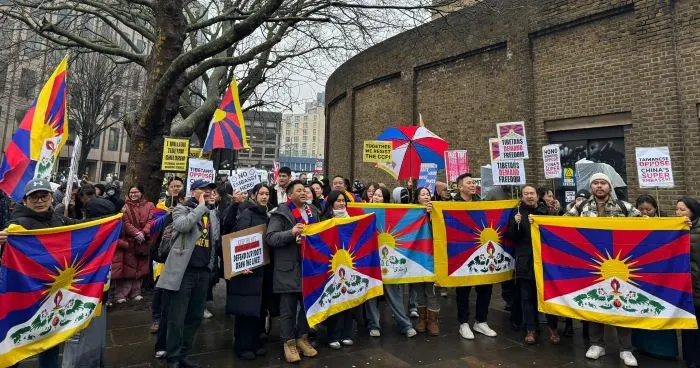Covid vaccine figures lay bare global inequality as global target missed
The international target to vaccinate 70% of the world’s population against Covid by mid-2022 was missed because poorer countries were at the “back of the queue” when vaccines were rolled out, say campaigners.
The latest figures from Our World in Data show huge inequalities in vaccination rates around the world, with just one in seven people in low-income countries fully vaccinated. By comparison, nearly three in four people in high-income nations have been vaccinated for around a year.
Activists are calling for a renewed push to increase vaccine take-up globally to slow the spread of the virus and prevent future variants. Their call comes as the World Health Organization said this week that Covid infections in Europe tripled and hospitalisations doubled in the past six weeks, with deaths totalling 3,000 a week.
“Unless we achieve equitable action in addressing this pandemic, it will always remain with us in the world,” said Kavengo Matundu, Africa coordinator for Global Call to Action Against Poverty (GCAP), who has been working with frontline groups on the Covid response. “It has shown that it is capable of mutating into anything, and can become something more dangerous than the original.”
Show more
As the first vaccines were rolled out across the world in 2020, low-income countries had to wait months to receive doses through the Covax vaccine-sharing system or from other donors. Wealthy countries had bought the lion’s share of available vaccines.
When they did arrive, vaccine doses were sometimes close to their expiry date, or insufficient to meet the demands of health centres. This, said Maaza Seyoum, Global South convenor of the People’s Vaccine Alliance, left people frustrated and reluctant to return to vaccination centres.
The emergence of new variants – particularly the Delta wave, which led to high death rates in some countries – helped convince some that the vaccines did not work. “As much as there’s all this naive and hopeful talk, when push comes to shove, we cannot count on rich countries to do the right thing,” said Seyoum.
“The poorest countries in the world have ended up at the back of the queue, creating the sense that some lives matter more than others.”
She added: “The pandemic, and the economic issues that have come with it – some of the data we’ve seen shows that 100 million more people have been pushed into poverty by this pandemic – make it difficult when you’re asking people in that environment to take out a huge amount of time from their money making to stand in line for a vaccine.
“We have to imagine what we would feel like if we were trying to access a service that we were told was delayed over and over.”
According to Our World in Data figures, as of 10 July only 15.8% of people in low-income countries were fully vaccinated, compared with 55% in lower-middle income countries, 73.5% in high-income countries and 78.7% in upper-middle income countries.
Show more
Africa has the lowest number of vaccinated people. Excluding Eritrea and North Korea, which have yet to start vaccination programmes, seven of the 10 countries with the world’s lowest rates of full-vaccination are in Africa. The other three countries are Papua New Guinea, Haiti and Yemen. The UK’s booster vaccination rate is already far higher than these countries’ standard vaccination rates.
Seyoum said that Covax was “a beautiful idea built out of solidarity”, but had failed “because of greed and poor planning”.
The latest data from the Duke Global Health Innovation Center, which covers the period up to 9 June, shows that Canada, Australia and the UK have bought enough vaccine doses to vaccinate their populations several times over: 11.1, 9.9 and 7.6 doses per person, respectively.
In contrast, South Africa was able to buy the equivalent of 0.5 doses per person. The African Union’s purchase of 330m doses of Moderna and Janssen vaccines equated to just 0.2 doses a person across the bloc.
Congolese officials with the Chinese ambassador to the Republic of Congo, Ma Fulin, receive the country’s first batch of Covid-19 vaccines in Brazzaville, 10 March 2021. Photograph: Xinhua/Alamy
The AU and Covax have turned down opportunities to buy doses of the AstraZeneca vaccine, which has a short shelf-life, and Moderna, which should be kept in very cold temperatures. Neither are suitable for countries without decent transport and cold chain infrastructure.
Covax said the “ad hoc” delivery of vaccines last year made it difficult for poorer countries to plan their vaccine rollouts. With more vaccines now available, it called for deliveries to match the timings required for lower-income countries to plan their immunisation campaigns.
Dr Fifa Rahman, a civil society representative on the WHO Access to Covid-19 Tools Accelerator, said more people from low-income countries should be included in discussions on vaccine rollout.
She said the rollout was “almost negligently late, because you’ve got a bunch of New Yorkers in a room making decisions about Africa.”
The Vaccine Delivery Partnership – an inter-agency organisation to accelerate vaccination coverage – was, she added, “doing a great job, but it was extremely late”.
Seyoum said: “Rich countries keep thinking that if they just protect themselves, they’re going to get out of the pandemic, but that is, on a public health front, completely ridiculous. It sounds trite, but as the head of WHO said last year: none of us is safe until we’re all safe.”
Sign up for a different view with our Global Dispatch newsletter – a roundup of our top stories from around the world, recommended reads, and thoughts from our team on key development and human rights issues, delivered to your inbox every two weeks:
Show more













